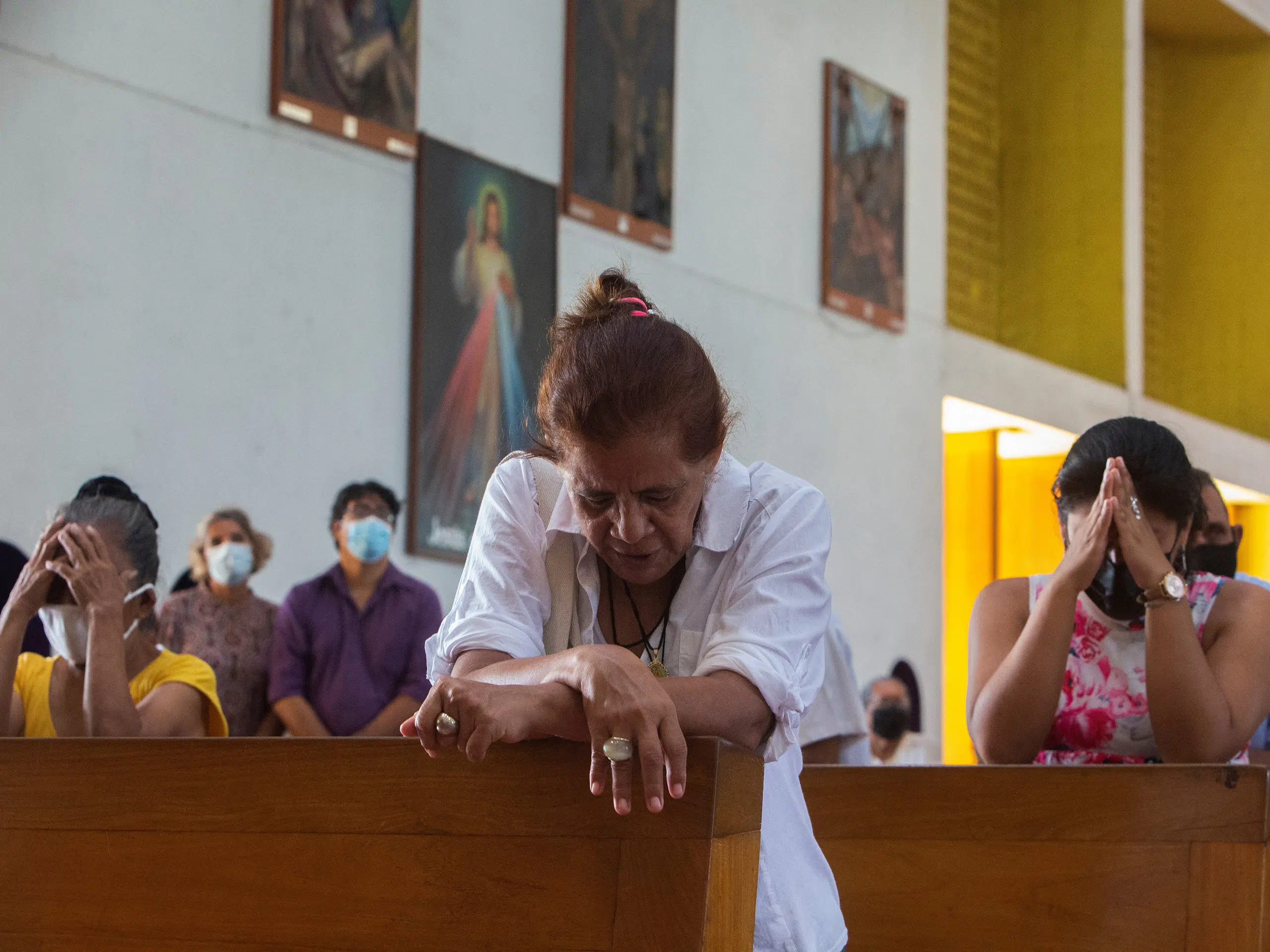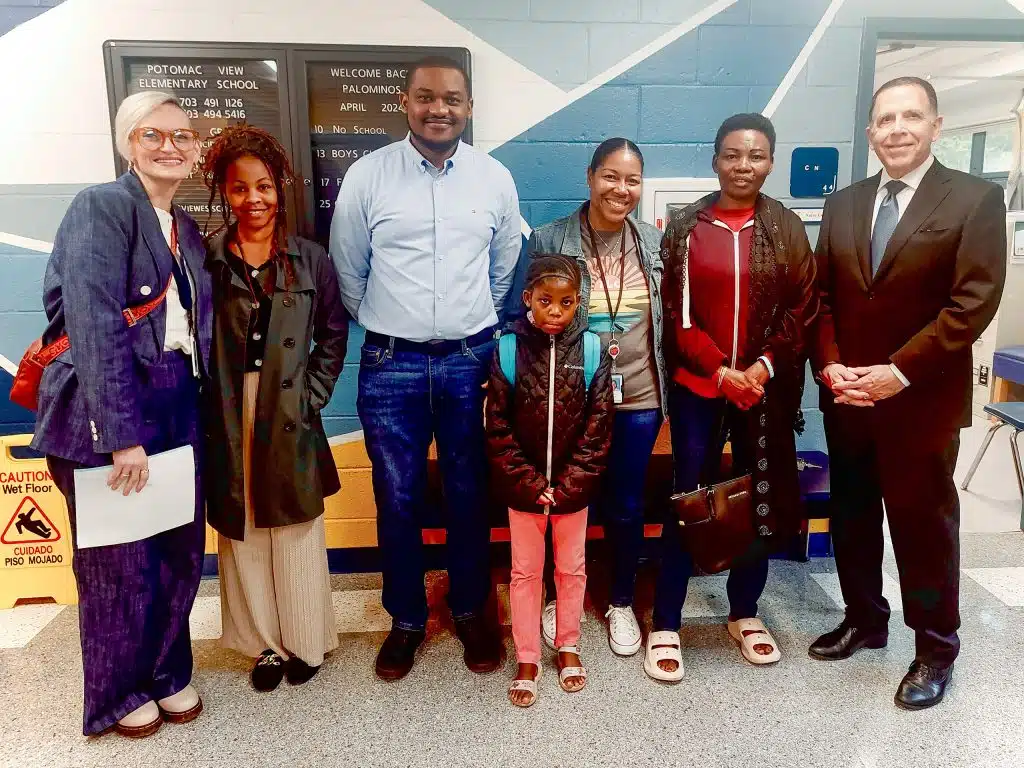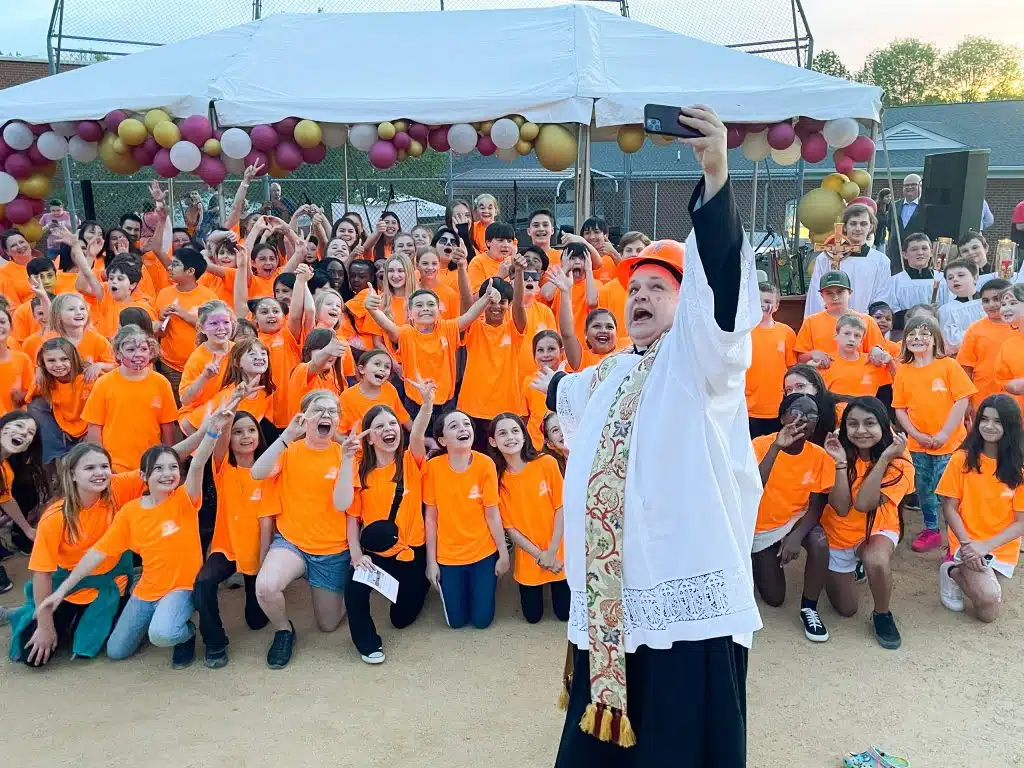The Catholic Church in Nicaragua needs a lot of prayers, said Claudia Chan, a Nicaraguan parishioner of Holy Family Church in Dale City. This year, governmental forces have expelled religious sisters, shut down Catholic radio stations, and arrested priests, including Bishop Rolando José Álvarez of Matagalpa.
“(The government) wants to discredit the church,” said Chan. “Our government is not faithful, and they are going especially after the Catholic Church because we are the majority. As Nicaraguans we are great believers, we are very Marian and very Catholic.”
Chan was born in Nicaragua and has lived in the United States for 14 years, but she still has connections in the capital city, Managua. She believes the Nicaraguan government, headed by longtime leader Daniel Ortega and his wife and vice president Rosario Murillo, has ideological differences with the church.
“They were allies with Fidel Castro, who prohibited religion and talking about religion in schools,” she said. “(They) are against the Catholic Church because it’s the only one that stands by the poor, the only one that has been helping and supporting them. I was a volunteer at hospitals and saw firsthand how the church helps people.”
Chan asked for prayer for her home country. “We have to gather to pray for the people of Nicaragua who have suffered a lot and now they also have to fight to defend their faith. Prayer is powerful,” she said. “I think we should get together and maybe do some peaceful marches, but I think the most important thing is that all churches pray for Nicaragua because God is good, and he listens to our prayers.”
Sandra, a parishioner of St. Anthony of Padua Church in Falls Church who asked that her last name be withheld, also was born in Nicaragua and still has friends and family there. “In Nicaragua, there is persecution not only (of) priests but also with anybody who says something against the government,” she said. “So when priests talk about (what is just), immediately the police will come take them and either they disappear or they put them in jail for no reason.”
Many priests are now scared to speak out or to make home visits, fearing that if they go to the house of an anti-government parishioner, they will get labeled as anti-government, too, said Sandra. Some laypeople are afraid to attend Mass. Sandra said she saw photos of one religious procession that usually draws a crowd of hundreds with only a couple dozen attendees this year.
Sandra plans to go to Nicaragua for the Feast of the Immaculate Conception December 8, which is a national celebration. But she worries what she’ll find there. “But I don’t know if it will be OK for me to celebrate because I don’t know if my family will be afraid,” she said. “Online, I don’t post anything. Now that the situation is going on with Bishop Álvarez, a lot of my friends posted things and I felt so bad that I was the only one from Nicacaragu and I didn’t even say a word because I didn’t know how that (could) be used. It’s very sad because we’re here but they still control us.”
In his Aug. 10 “Walk Humbly Podcast,” Bishop Michael F. Burbidge also asked for prayers for Nicaragua. “God bless Bishop Álvarez. We’re certainly keeping him and all his faithful in our prayers,” he said. “But what a warning to all of us, in whatever country we live (that) ignoring religious freedom can lead to a slippery slope. It’s the greatest of freedoms — the religious freedom — to be the person that God has created us to be. So, certainly, (we’re) praying for Bishop Álvarez and all those entrusted to his care.”
“We were talking among ourselves, here in the curia, precisely about the state of our hearts … we want to tell you, brothers and sisters, that our hearts are full of love, and we’re at peace. Our hearts are full of forgiveness. That’s why we’re at peace. Our hearts are full of the mercy of God, and so we’re at peace. As I said at the beginning of the celebration, we are at rest in the hands of the Lord.”
–Bishop Rolando Álvarez
Timeline of the escalating religious persecution in Nicaragua
2018
The Nicaraguan bishops mediated a national dialogue in 2018 after protesters demanded Nicaraguan President Daniel Ortega’s ouster. The talks broke down, however, as the bishops saw little goodwill on the government side.
2021
Ortega won the November election — denounced internationally as a sham — after his main opponents were arrested and imprisoned.
March 2022
The apostolic nuncio was expelled from Nicaragua. The government offered no explanation.
In a March 12 statement, the Vatican said the Nicaraguan government “has decided to withdraw the consent (welcome) for Archbishop Waldemar Stanislaw Sommertag, apostolic nuncio to Nicaragua since 2018, imposing him to leave the country immediately after notifying him of that measure.”
The statement continued, “Such an order is incomprehensible since (Archbishop Sommertag) has worked tirelessly for the good of the church and the Nicaraguan people,” which included serving as a witness in a national dialogue between the government and opposition and working to free political prisoners.
June 2022
The Missionaries of Charity are expelled from Nicaragua. The order of sisters — founded by St. Teresa of Kolkata, known popularly as Mother Teresa — operated a home for abandoned adolescents, a home for the elderly and a nursery for low-income families in Nicaragua.
Nicaraguan media reported the sisters’ exit as part of a crackdown on nongovernmental organizations by the ruling Sandinistas. Media report Nicaragua has officially extinguished the legal standing of some 770 nongovernmental groups, including some Catholic organizations.
Early August 2022
Nicaraguan authorities ordered the closure of Catholic media outlets and raided a parish in the Diocese of Matagalpa.
Police entered the Infant of Prague chapel in the community of Sébaco Aug. 1 to seize radio equipment, prompting parishioners to protest outside. Police rebuffed the protests and fired gunshots in the air as church bells rang.
In an Aug. 1 statement, the Diocese of Matagalpa said communications regulator TELCOR had ordered the closure of its Catholic radio station for similar reasons, saying it had operated without a valid license since 2003. The diocese disputed that claim, saying Bishop Rolando José Álvarez of Matagalpa “personally submitted documentation” to TELCOR in June 2016.
Late August 2022
Bishop Álvarez was put under house arrest in Managua after being seized in an early morning raid on the diocesan offices Aug. 19. Nicaragua’s National Police later confirmed that they carried out “an operation which permitted the recuperation of normalcy for Matagalpa’s citizens and families.” The 11 other priests and laity arrested alongside the bishop continue languishing in the notorious El Chipote political prison.
The National Police said Bishop Álvarez was under investigation for “trying to organize violent groups, inciting them to execute acts of hate against the population, provoking an environment of chaos and disorder, disturbing the peace and harmony in the community with the objective of destabilizing the Nicaraguan state and attacking the constitutional authorities.”
This announcement came on the heels of Bishop Álvarez vociferously objecting to regulators ordering the closure of Catholic radio stations in the Diocese of Matagalpa.
— Source: Catholic News Service
Maraist can be reached at [email protected] or Twitter @zoeymaraistACH. Ana Lucia Batista translated parts of this article.



